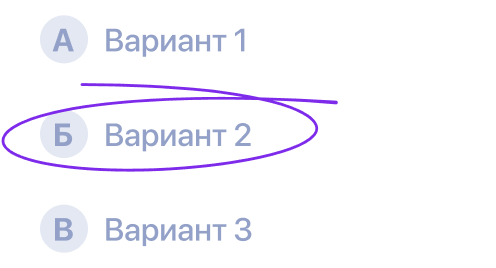World intellectual history. Karl Jaspers and the Axial Age
Выбери формат для чтения
Загружаем конспект в формате docx
Это займет всего пару минут! А пока ты можешь прочитать работу в формате Word 👇
WIH. Lecture One. Some points covered in Lecture One.
Below is
1) Some points covered in the lecture - read the notes
2) Instructions on what to read for the seminar
1. World intellectual history.
- How can approach history, the study of the past, and particularly, for us, the study of ideas and their connections to events, in the past.
We will study: history; religion, philosophy; theology == at least in the first semester
About history, see below
religion: we can give a much broader meaning to this than people usually think. Let's adopt Yuval Harari's definition: religion is a "system of human norms and values that is founded on a belief in a superhuman order." Sapiens, p. 234. Then not only Islam and Christianity are religions, but Communism and Liberalism are also religions (they claim that the values they embrace are not merely humanly subjective but derive from something objective in the universe). Football is not a 'religion', as its rules are evidently manmade.
philosophy: the Greek word means "love of wisdom". It is an Axial (see below) practice, a question of received religious, hieratic wisdom. Is it only the Greeks that do philosophy? We'll ponder this. Philosophy used to encompass the study of almost everything; since the rise of modern science, it has gradually lost ground.
theology: the 'study of God', or the study of thinking about the divine. In the Christian middle ages, it was the 'queen of the sciences'; now - not so much!
Now, regarding history, how are we to approach this?
We should remember that history needs writing and urban archives to get going; there is no history before civilization, just pre-history. But still, what kind of theory or approach can we use in thinking about the early thought systems we are going to encounter. Well:
- We will choose a certain approach, a compromise between:
- the Christian view of history: everything is before or after Christ; Christ gives the meaning of the historical process, his life reveals the divine intention in the world, he is the divine Logos (explanation, reason, ratio). So: Ancient Egypt is not a fully true civilization, human potential is not fulfilled there, but there are glimmers, anticipations of the full human truth; etc etc. An updated version of this would be Hegel (see next term).
- the Marxist view of history: the world is material, consciousness is secondary, derived. the main engine of historical movement is economic. Ancient Egypt is not a fully human civilization because its social order does not allow each individual to own the fruits of their labor and creativity. History is moving from primitive communism to perfected technological communism, human fulfillment is (sort of) guaranteed in the future.
- the liberal, progressivist view of history: man is a unique animal with reason that separates him from the rest of biological being; he is evolving intellectually and maybe physically towards greater perfection: more human rights, more technology, more productivity, more capitalist exchange.
- the trans-humanist view (Harari and others): man is simply Sapiens, one of several hominid species that evolved on the earth. There is no meaning outside of the human mind: human rights etc are just fictions; only man makes his own reality, it is entirely subjective. Man will at some point develop Artificial Intelligence and immortality and then either a computer superconsciousness will develop, and humans will become extinct, or humans will destroy themselves. Nothing is guaranteed. Ancient Egypt's gods and morals are as subjective as our own, mere myths.
And instead we will use the approach of:
2. Karl Jaspers and the Axial Age.
- for convenience we will not adopt the above views to history, at least not for the first few months!
- we will start with a sort of compromise idea, the Axial Age of Karl Jespers:
- human ideas are significant, not subjective myths
- there is reality to mind and spirit, it is worth studying the religions of the past
- but Christianity is based on belief in a revealed scripture
- world intellectual history must instead have an empirical, solid basis
- that basis can be seen in the human intellectual revolution that happened between 800 bce and 200 bce in the axial (turning-point) age
- China, India, Persia, Israel, Greece are places where:
- Confucius, Lao-Tzu; Gautama Buddha; Zoroaster; Hebrew prophets (Isaiah etc); Socrates == all suddenly appear, preaching ideas that criticize what has gone before.
- they all share:
-- the shift from 'mythos' to 'logos'
-- the concern to ask big qqs like what is 'being' vs 'non-being'
-- an interest in one God or ultimate being vs the less real 'gods' of the myths
-- a concern for language
-- an interest in the individual self and its moral responsibility
-- the idea of a moral order in the universe (vs the amorality of the archaic gods)
-- a concern for ethics over automatic magical ritual
-- why does the Axial revolution occur?
-- many answers, none adequate: perhaps connected with the 2nd urbanization process?
3. Pre-axial thought.
Still in this first week, I want you to read some texts that predate 800 bce, so we can get to the root of the earliest human thinking.
So here is your first reading task:
A.
Read bottom of p.107 to top of 108 in Peter Watson, "Ideas: a history" - this is a brief description of the notion of Axial Age, quoting Jaspers. You can find this book in the Other Materials file.
B. Look at the timeline of human history from Harari's book Sapiens: consider the question: what is perhaps surprising about he includes or excludes in the period up to 200 b.c. for example? We will discuss this in the seminars
C.
Read "The Coming of Enkidu" in Worlds of History: A Comparative Reader, pp.51-55. [this is attached in the Lecture one folder]
Answer these questions:
- Who is Gilgamesh?
- Who is Enkidu?
- What is their relationship?
- What role do wine, woman, and bread play in the story? (cf. p.54 "Enkidu, eat bread, it is the stuff of life, drink the wine, it is the custom of the land.")
- What might the story of Gilgamesh and Enkidu symbolize?
- Is this first written story in human history "primitive" and difficult for us moderns to access?
- Is it evidently "pre-axial", i.e. "mythic", "non-logical"? Can it still speak to us now?"
D.
Read "The Story of the Flood" in Worlds of History: A Comparative Reader, pp.55-58. [lecture 1]
What do you learn about how the Sumerians thought of:
- nature
- the gods
- reward and punishment
- immortality (cf. the last lines of the story)
How similar is this story to the story of Noah and the Flood in the Bible? How does it differ (we will talk about this more in the lecture on Ancient Israel).
--- In the seminar, we will also consider some short extracts from the Code of Hammurabi and the Egyptian Book of the Dead. Skim through the following (optional): Hammurabi's Code, p.58; Egyptian Book of the Dead, pp.66-67.





